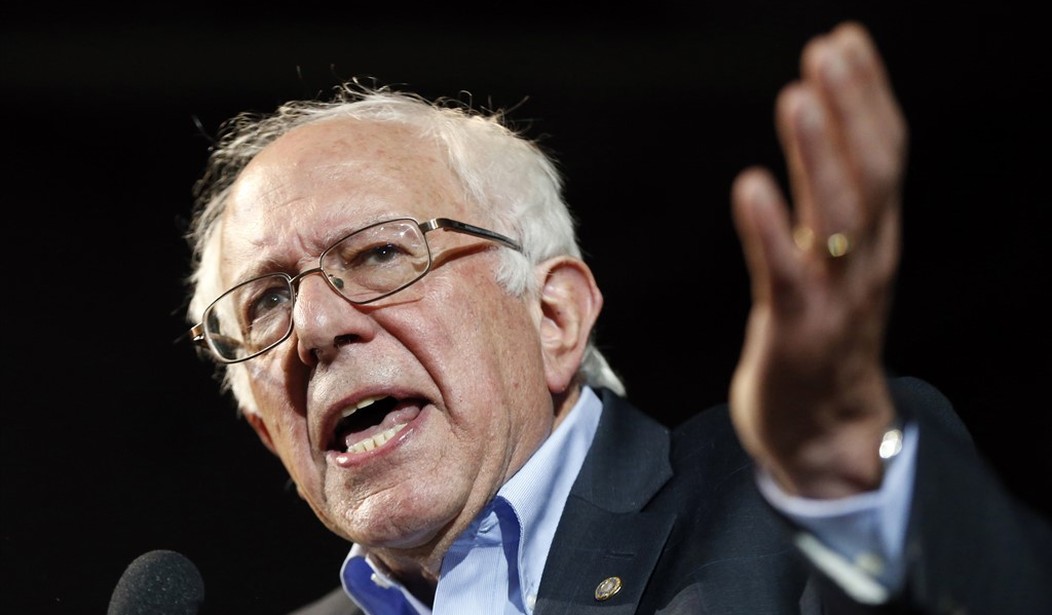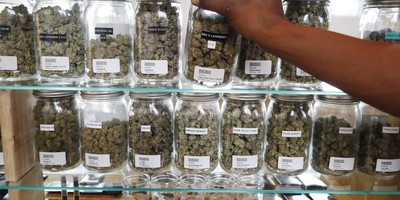Well, maybe it's not that surprising. And it's probably not that awkward. Politico could have just as easily declared: The rise of Bernie Sanders is a completely predictable outcome of the Democratic Party's trajectory. Or, maybe: The rise of Bernie Sanders portends a socialistic future for the Democratic Party.
After all, while the press had fun detailing every rightward lurch of the conservative movement, not only has the "socialist surge" been a restive force within Democratic Party politics during the Obama Age, but it's been making tremendous policy progress.
Although we rarely frame politics in these terms, as a philosophical matter, we've often been engaged in a debate that pits the theories of 18th-century liberalism -- the kind that brought us the Constitution and limited government -- against ideas first embraced in 19th-century Marxism. Is there any doubt the left's grassroots is driven by the latter, whether it's intuitively or on purpose? Just think about the emotional core (often confused as an intellectual position), the rhetoric and the focus that propel most ideas liberals toss around about inequality, plutocracy, "democracy" and the role of government in our lives.
So the author of the psychosexual drama "Man -- and Woman" is polling at 35 percent in one recent CNN poll of New Hampshire, even though he is supposedly operating far outside the norms of American political debate. Sanders can draw 10,000 fervent fans at a campaign event in Wisconsin -- a number that would be envied by most presidential candidates this cycle. Sanders correctly points out that his positions on higher minimum wage, pay equity and other state interference in markets enjoy high approval ratings with most voters. "It is not a radical agenda," he says. "In virtually every instance, what I'm saying is supported by a significant majority of the American people."
Recommended
This is almost true.
What is wholly true is that big majorities within the Democratic Party support these policies, and they would probably go a lot further if they could. Hillary Clinton is lucky there isn't a more compelling and charismatic candidate making a more comprehensive socialistic case to Americans, as there was the last time around. The difference between her adopted position and his real one is scope.
That's not to say Democrats are unadulterated socialists sitting around studying communist theorists in their spare time, any more than small-government conservatives are opposed to every state-run program. But today, many prefer policies that would be referred to as socialist anywhere else in the world. And the stigma attached to the word is slowly, and fittingly, disintegrating.
According to a YouGov poll, 52 percent of Americans hold favorable views of capitalism, while only 26 percent have a favorable view of socialism. When broken down further, 43 percent of Democrats hold sympathetic views toward socialism. Democrats are just as likely to have a favorable view of capitalism as they do collectivism. The future does not bode well for free-market fans. According to a Pew poll, 49 percent of those between ages 18 and 29 say they have a positive view of socialism -- with only 43 percent having a negative view. Considering the history and connotation of the word, that's quite extraordinary.
So the awkwardness surrounding Sanders' candidacy -- one that is supposed to make Clinton seem more reasonable -- is that he is running with almost indistinguishable philosophical positions from the frontrunner.
Now, of course, Sanders will not win the Democratic Party nomination. I'm skeptical he's even as popular as polls claim. Still, he's moved to the ideological center of the Democratic Party without changing at all. So will his ideas. Democrats will not pull back once they get their $10 minimum wage. They will not be content once universal pre-K is passed. They will not be satiated after the next round of unilateral Environmental Protection Agency intrusions into the energy markets are instituted. And liberals will never concede that health care is now working and so we won't need any more government involvement.
Liberals may not believe in controlling the means of production, but many do believe in tightening controls enough through regulatory regimes and laws that they can dictate the outcome in markets they do care about. When the downturn hit us, Americans witnessed an unprecedented array of interventions, producing the weakest recovery in history. When oil prices spiked, and the populist rage against energy companies was reaching a crescendo, a Rasmussen poll found that a plurality of Democrats (37 percent) supported outright nationalization of the oil companies. When the health care debate was at its most overwrought, a New York Times/CBS News poll found a majority supporting a government-run insurance company. What happens the next time we're in trouble?
Sanders might be treated as an outlier. But really, it's more likely he's the future.

























Join the conversation as a VIP Member